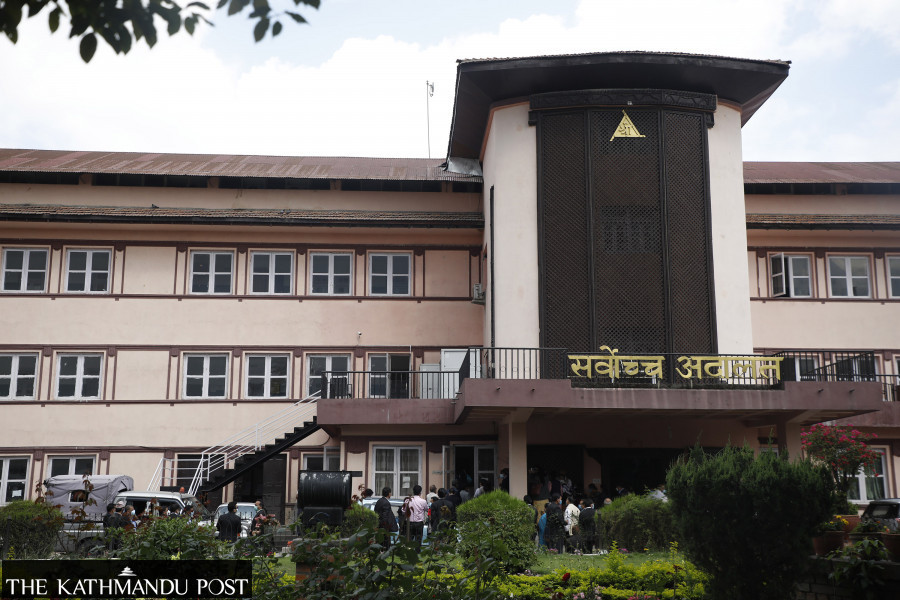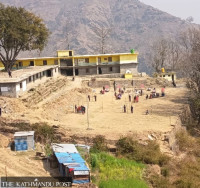National
Court’s intervention natural when leaders don’t follow charter, ex-chief justices say
Parties have the tendency of criticising the court whenever rulings do not go their way, observers say.
Binod Ghimire
The main opposition, CPN-UML, has been criticising the July 12 Supreme Court ruling that reinstated the House of Representatives and directed the President to appoint Nepali Congress President Sher Bahadur Deuba as prime minister.
The party led by KP Sharma Oli has been arguing that the incumbent government was formed based on the court’s ruling and not as per the popular mandate, even though Deuba had won over 60 percent support of the House of Representatives. When Deuba went for a floor test on July 18, as many as 165 members in the 271-member lower house had voted in his favour.
When the Constitutional Bench of the Supreme Court reinstated the lower house on July 12, it had done so for the second time within a span of five months overriding the House dissolution moves of the Oli government. Earlier, the Oli government had dissolved the lower house on December 20, 2020 and the apex court had reinstated it on February 23.
On both occasions, Oli’s UML was critical of the court’s rulings. But the chorus of disapproval was louder when the House was reinstated for the second time, for the Supreme Court this time had also directed the Office of the President to form a new government under Deuba, who was then the leader of the main opposition.
The only instance the UML had welcomed the court’s verdict was when it invalidated the Nepal Communist Party (NCP) on February 7 that revived the UML and the CPN (Maoist Centre).
But it is not just the UML that has the tendency of criticising the court whenever a decision does not go its way.
The Maoist Centre, for instance, welcomed the Supreme Court’s decision to reinstate the lower house but publicly criticised its decision to revive the UML and the Maoist Centre, saying the ruling was unnatural and political. The party even demanded that the court review its earlier decision, which was turned down.
“There can be dissatisfaction over the court verdicts and they can even be criticised,” said Kalayan Shrestha, a former chief justice, during an interaction. “However, making a mockery of verdicts or having a selective approach to perceive them isn’t right.” He said the court’s intervention would not be necessary if the government and the political parties had a culture of abiding by legal and constitutional provisions. “The court had to reinstate the lower house twice in a year to safeguard the constitution. However, it was criticised for its decisions,” he said.
For around a year the political course of the country has been shaped by Supreme Court’s verdicts as there is a growing tendency within the government and the political parties to undermine the constitution and laws. The court had to bring the political course on track, though it was the job of the legislature or the executive. The political and the constitutional course that was derailed following the December 20 dissolution was brought on track following the February 23 verdict.
However, uncertainty loomed again after the May 21 dissolution, which was corrected by the verdict on July 12. “The parties and the governments should stop politicising the constitution,” said Sushila Karki, a former chief justice. “Intraparty disputes and the ego of politicians have led to attacks on the constitution.” She said the court has to perform its job prescribed by the constitution whenever the constitution and its spirit are under attack.
As two parties, the CPN-UML and the Janata Samajbadi Party, split based on the ordinance issued by adjourning the House session, a case challenging the ordinance is sub judice at the Supreme Court. Its hearing is scheduled to commence on Friday. The court’s verdict on the matter will have an impact on the present political course. Leaders across parties agree that party leaders have weakened the constitution by taking arbitrary decisions and leaving up to the judiciary to correct them.
“The activities of the leaders with the responsibilities to protect the constitution are attacking it,” said Barsha Man Pun, a Maoist Centre leader. “This is very unfortunate.”




 27.41°C Kathmandu
27.41°C Kathmandu














